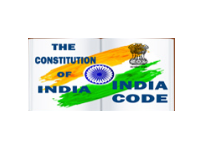Roles & Responsibilities
ROLE OF THE DEPARTMENT AND ITS OTHER ATTACHED OFFICES.
Department of Personnel & Training
The role of the Department of Personnel & Training can be conceptually divided into two parts, In its large nodal role, it acts as the formulator of policy and the watch-dog of the Government ensuring that certain accepted standards and norms, as laid down by it, are followed by all Ministries/Departments, in the recruitment, regulation of service conditions, posting/transfers, deputation of personnel as well as other related issues. Towards this end, guidelines are issued by it for the benefit of all Ministries/Departments and it monitors the implementation of these guidelines. It also advises all organizations of the Central Government on issues of personnel Management. At a more immediate level, the Department has the direct responsibility of being the cadre controlling authority for the IAS and the three Secretariat Services in the Central Secretariat. The Department also operates the Central Staffing Scheme under which suitable officers from All India Services and Group ‘A’ Central Services are selected and then placed in posts at the level of Deputy Secretary/Director and Joint Secretary, on the basis of tenure deputation. The Department also deal with cases of appointment to posts of Chairman, Managing Director, full-time functional Director/Member of the Board of Management of various Public Sector Undertakings/ Enterprises, Corporations, Banks and financial institutions. It also deals with the assignment of Indian experts to various developing countries. It is also responsible for formulation and coordination of training policies for the All India and Central Services and providing support for the capacity building of State Government officials
Recruitment Agencies
The two organizations through which the Department ensures recruitment of personnel for the Government are the Union Public Service Commission (UPSC) and the Staff Selection Commission (SSC). The former is constituted under a provision of the Constitution and is responsible for conducting examinations for appointment to the higher civil services and civil posts under the Union Government; including recruitment to the All India Services. There is a mandatory provision for consulting the Commission on all matters relating to methods of recruitment, principles to be followed in making promotions and transfers from one service to another and on all disciplinary matters. The SSC is responsible for making recruitment to subordinate staff such as Assistants, Stenographers etc. The office of the UPSC is located in Dholpur House, New Delhi, while that of the Staff Selection Commission is located at the CGO Complex, Lodhi Road, New Delhi.
Training Division
Training Division is responsible for coordinating the implementation of National Training Policy which was adopted in April 1996. The Department also sponsors a number of training programmes on a variety of subjects for different categories of Central and State Government employees. Training Division also develops and undertakes capacity building initiatives under special packages for different levels of State Government officials. Training Division provides assistance for upgradation of the training infrastructure of State Government Training Institutions. It is responsible for the development of resource persons as trainers in different skills of training and maintains a database of trainers. It facilitates the development of training material and also coordinates with Training Institutions all over the country. The Training Division organizes a number of long term training programmes in public policy in leading management institutes in India for the officers of the Central and State Services. The foreign training scheme for the Central and State Government Officers, other than selection, is administered by the Training Division. A new scheme of mandatory Mid-Career Training for IAS officers is also being administered by the Training Division
Two major training institutions directly under the administrative control of the Department are the Lal Bahadur Shastri National Academy of Administration (LBSNAA), Mussorie and the Institute of Secretariat Training and Management (ISTM), JNU Campus, New Delhi. The former is mainly responsible for providing induction training to recruits to the Indian Administrative Service and other All India Services and Central Services. The Institute of Secretariat Training and Management provides induction as well as in-service training to members of the Central Secretariat Service. The Indian Institute of Public Administration, New Delhi which is an autonomous organization, is also being funded partly by the Training Division.
Senior Appointments under the Government of India
All proposals for senior appointments under the Government of India, which require the approval of the Appointments Committee of the Cabinet (ACC), are processed through the Establishment Officer as Secretary of the ACC. These include Board level appointments to Central Public Sector Undertakings and appointments of Joint Secretaries, Directors and Deputy Secretaries in the Ministries/Departments. In addition, all appointments by promotion, which require the approval of the ACC are also processed through the Establishment Officer, whose office is located in the North Block, New Delhi.
Administrative Vigilance
An important element of personnel management is the maintenance of the professional ethics and standards of the bureaucracy. The Department of Personnel & Training determines Government policy for the maintenance of the integrity of the public services and eradication of corruption and coordinates the activities of various Ministries/Departments in that area. However, all Ministries/Departments and offices of the Government of India have the direct responsibility for the maintenance of discipline and integrity of their staff by taking preventive measures and eradication of corruption in their operational area of work.
Central Vigilance Commission
Advice on all vigilance matters is provided by Central Vigilance Commission. It has jurisdiction and power in respect of all matters to which the executive power of the Central Government extends. The Commission enjoys the same measure of independence and autonomy as the Union public Service Commission. The Commission has its office at Satarkta Bhavan, INA Colony, New Delhi.
Central Bureau of Investigation
The Central Bureau of Investigation (CBI) is the premier investigating agency of the country and watchdog of the nation to arrest the growing menace of corruption as also to investigate the various types of banking, non-banking and the multitude of economic and other conventional offences. A new addition to its function is investigation of inquiries into terrorist crimes, vandalism etc. Cases are referred to this agency, on the basis of concurrence of the State Governments, by the High Court as well as by the Supreme Court and there is an ever growing public demand for CBI investigation on account of the general perception that investigation by the CBI is more objective. The CBI has its headquarters office in Block No. 3, CGO Complex, New Delhi.
Joint Consultative Machinery
There is a well-structured machinery for joint consultation between the Central Government and its employees on a wide variety of service matters having a bearing on the administration and the general interests of the Government employees. It is a three-tier machinery consisting of the National Council, the Department Council and the Regional/Office Council. Service matters, pertaining to the interests of the generality of the employees or specific groups of them, are dealt with by this machinery.
Central Administrative Tribunal
In spite of the elaborate system of rules and regulations, which govern personnel management, there are Government employees who feel aggrieved by the Government decisions. The courts used to take many year to decide these cases and litigation was expensive. In order to provide speedy and inexpensive justice to employees aggrieved by Government decisions, the Government set up the Central Administrative Tribunal (CAT) in 1985, which now deals with all cases relating to service matters which were previously dealt with by courts up to and including the High Court. There are now 17 regular Benches of the CAT functioning in various parts of the country, including its Principal Bench at Delhi.
Staff Welfare
Realising that improvement in the working and living conditions of the employees and their families leads to efficiency and high morale, the Department supports various welfare programmes. These are provided through Recreation Halls/ Clubs in various Ministries/ Departments, Central Government Employees Welfare Coordination Committees in Central Government Offices located outside Delhi, Residents’ Welfare Association /Area Welfare Officers, Benevolent Fund and Departmental canteens. Department of Personnel and Training is the nodal agency for four registered societies set up for the welfare of Government employees and their families. These societies are the Central Civil Services Cultural and Sports Board, Grih Kalyan Kendra, Civil Services Cultural and Sports Board and Kendriya Bhandar. All the four societies are located in Delhi.
Public Enterprises Selection Board
Beside the three Departments of the Ministry, the Public Enterprises Selection Board (PESB) has also been functioning as a part of the Department of Personnel and Training since August, 1986. The PESB is an expert body responsible for selection and placement of personnel for top managerial posts in the Public Sector Undertakings. The Board was originally constituted in 1974 and placed under the administrative control of the Ministry of Industry (Bureau of Public Enterprise). In 1986, the administrative control of the Board was transferred to the Department of Personnel and Training. The Board consists of a full time Chairman and three full time Members. The Secretariat of the Board is headed by an officer, designated as ‘Secretary’ who is an officer of the rank of Joint Secretary to the Government of India. The office of the Board is located in 3rd Floor, Block 14, CGO Complex, Lodhi Road, New Delhi.
Central Information Commission
In pursuance of Section 12 of the Right to Information Act, 2005 the Central Government has constituted the Central Information Commission, consisting of the following names:
The Gazette Notification constituting the commission was issued on 11th October,2005 and all the Commissioners have taken oath and are in their positions. The Commission shall exercise the powers conferred on, and perform the functions assigned to it under the Act.






 कार्मिक एवं प्रशिक्षण विभागDepartment of
कार्मिक एवं प्रशिक्षण विभागDepartment of 













